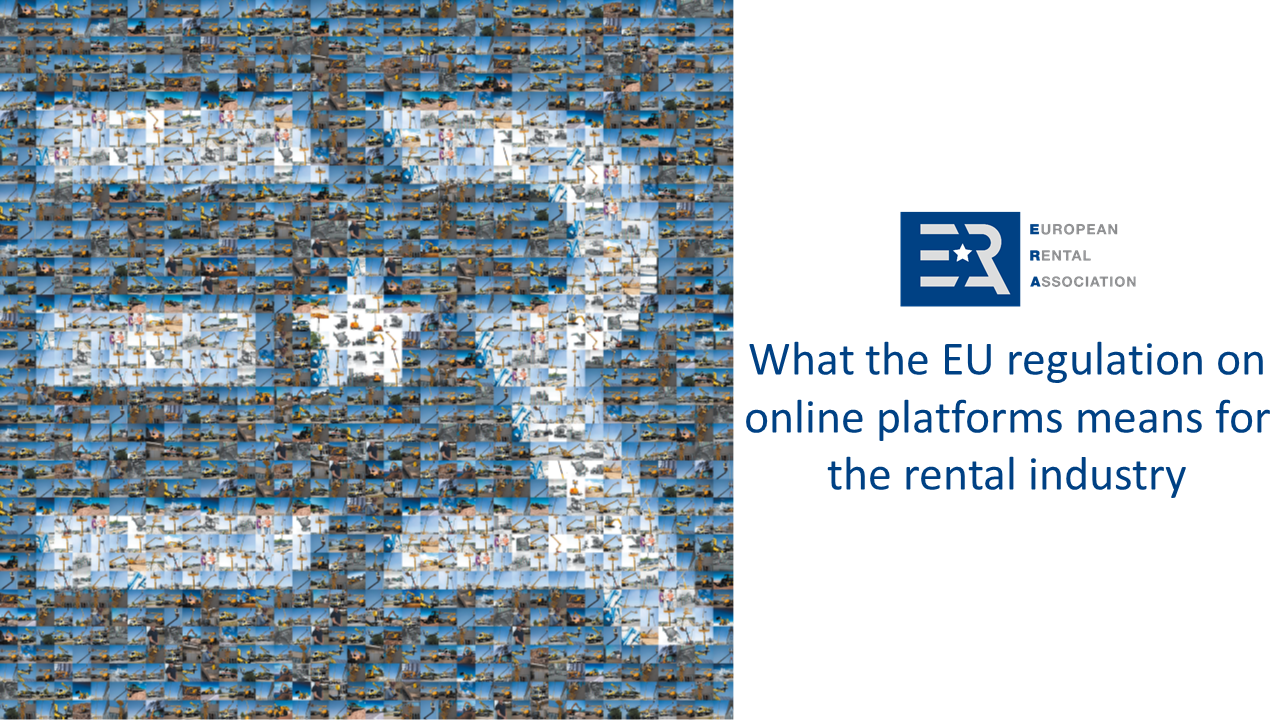
The EU regulation on platform-to-business trading practices (P2B regulation) started to apply on 12 July 2020. In this article, you will find out how it is relevant for the rental business, be it for large, medium or small rental companies, or rental associations.
The new EU regulation on platform-to-business relations targets online platforms (called online intermediation services) as well as online search engines, price comparison tools and other online marketplaces. Therefore, as such the regulation is applicable to most rental platforms. It does not apply to online advertising, payment services, search engine optimisation and services that connect hardware and applications that do not intermediate direct transactions, and online retailers if they only sell their own products.
As an EU regulation, it is directly applicable (there is no implementation or transposition into national law needed for it to apply).
The aims of the regulation are to achieve fairness and transparency, especially regarding the ranking of corporate website users in the search results generated by online search engines, create transparency in the functioning of the platforms, as well as to provide business users of these online services effective possibilities for redress. It should strengthen the position of a business that decides to advertise and sell through an online platform.
The obligations of the online platform vis-a-vis the business user (in the context of the regulation, a rental company present on an online platform is defined as its ‘business user’):
- The online platform must provide a description of the parameters that determine the ranking or prominence of goods and services on the platform (if a search engine changes this ranking, it must provide this information to the business user). Online platforms and search engines will have to provide information about how they treat and rank goods or services offered by themselves or by businesses they control compared to third party businesses. Businesses should also be informed about how online platforms can influence their ranking position (e.g. through the payment of additional commissions). Online search engines will also need to inform consumers in case the ranking result has been influenced by any agreement with the website user.
- The online platform should not prevent the business user from making its identity visible on the platform.
- If the online platform restricts the business user by offering the same goods and services under different conditions through another way than on the platform, it must include the grounds for that restriction in their terms and conditions and make them publicly available.
- If the platform also offers auxiliary services (such as insurance), they must provide information on the conditions under which the business user can also provide its own auxiliary services on the platform.
- If the online platform decides to restrict, suspend or terminate a business account, including the delisting of individual goods or services or effectively removing them from search results, it is required to provide a statement of reasons to the business concerned, give 30 days prior warning in most cases of termination and preserve the data associated with the business user’s account to enable this account to be reinstated if it was closed in error.
- Larger online platforms have the obligation to set up or have in place internal complaint handling mechanisms with external mediators, to deal with complaints from business users.
In case of complaints or disputes, a business user (rental company) can:
- Lodge a complaint directly to the online platform complaint mechanism
- Complain to a national public authority
- Take action before competent national courts, or
- Ask a national (rental) association (or ERA) to take the online platform or search engine to national court over non-compliance with the P2B regulation.
In the near future, online platforms will be subject to further regulation currently being prepared by the European Commission. The Digital Services Act will set up a framework for the supervision of online platforms and will introduce new rules for large platforms so that new market entrants have a chance to compete with them.
For more information, contact ERA at [email protected].
